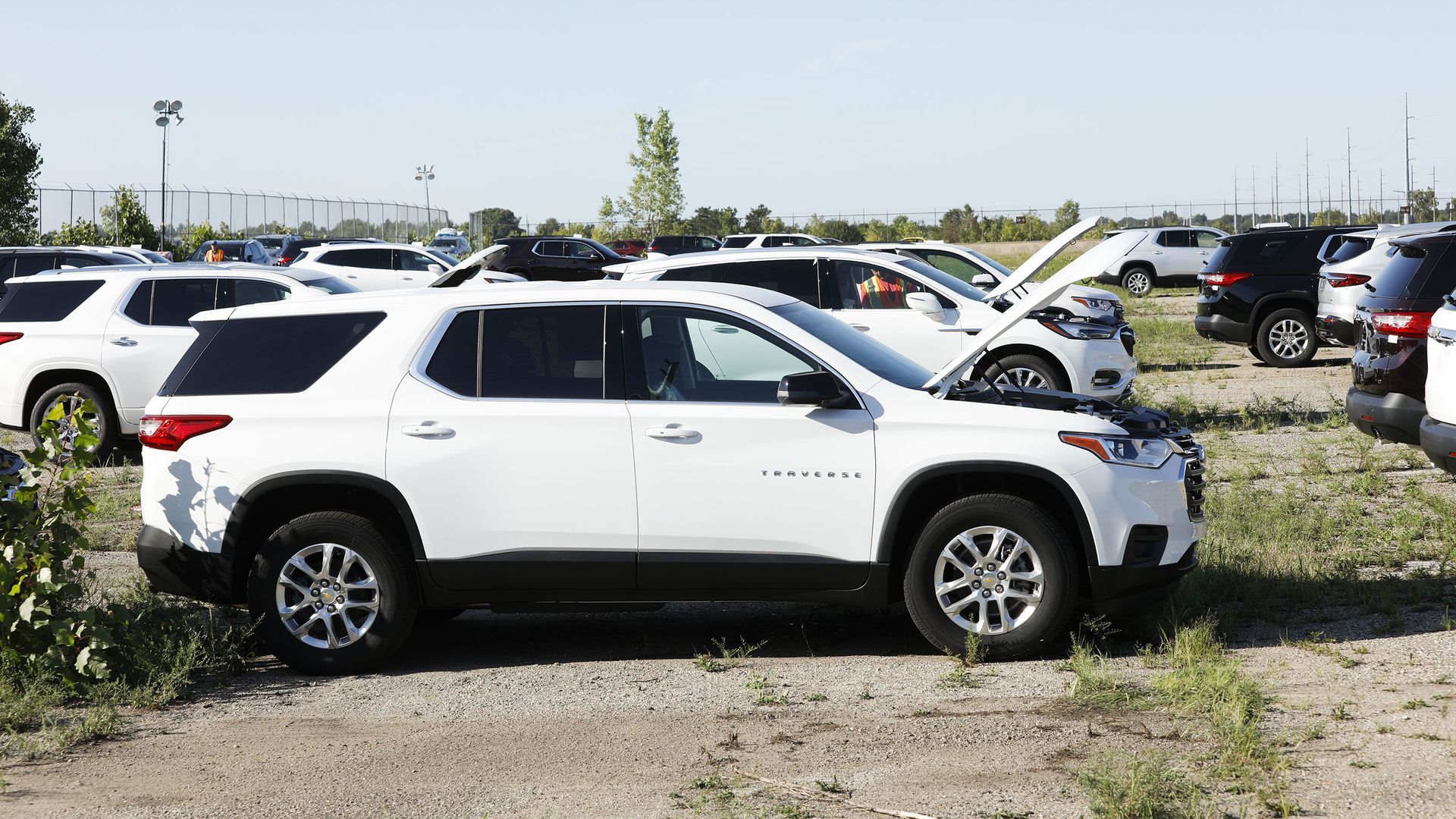GM reshuffles production plans as chip shortage persists
Add Axios as your preferred source to
see more of our stories on Google.

General Motors vehicles sit in a holding lot September 2, 2021 in Lansing, Michigan; Photo: Bill Pugliano/Getty Images
Supply chain issues related to the Delta variant have become the latest round of “whack-a-mole” for the auto industry.
Catch up quick: GM is halting or continuing to halt production at eight of its North American assembly plants because of chip shortages.
- The impacted plants in Indiana, Missouri, Michigan, Tennessee, Canada and Mexico are expected to be offline for a few weeks.
- “During the downtime, we will repair and ship unfinished vehicles from many impacted plants, including Fort Wayne and Silao, to dealers to help meet the strong customer demand for our products,” a GM spokesperson tells Axios.
Why it matters: The rise of the Delta variant in Southeast Asia, where many chip plants are located, could take months to resolve — impacting already-dwindling vehicle inventories, driving up consumer costs and limiting car manufacturers’ future earnings through 2023.
By the numbers: U.S. light vehicle inventory is down 70% compared to two years ago, as of the end of August, Dave Whiston, U.S. autos equity analyst at Morningstar, tells Axios.
- In GM’s case, inventory was down 86% in August this year over August 2019.
- The average transaction price for a new car reached a new record of $42,736 in July, according to Kelley Blue Book, up 8.2% from July 2020. Among makes, Cadillac prices grew the most — by 32.8%.
- Minivan (16.7%), mid-size (12.6%), and luxury full-size SUV/Crossover (12.6%) vehicle prices rose the most.
What they’re saying: “GM’s been doing what everyone else has — taking what chip inventory they can get and putting them toward more profitable cars like pickup trucks,” says Whiston.
- One plant where GM hasn’t lost production is Arlington, Texas, which produces the GMC Yukon and Cadillac Escalade, he adds. "It’s not a coincidence that it’s spared."
The big picture: Nearly every automaker has paused production at some point during the pandemic.
- Even Toyota, which had stockpiled chips, is running low and cutting production.
Yes, but: Even if the health crisis was resolved immediately, it would still take about six months for chips to reach automakers, says Whiston.
- “The chip shortage is not going to be abruptly over. It could go well into 2022 and 2023,” he said.
What to watch: Other variables, like skyrocketing steel prices, aren’t helping with production problems.
- “One thing the U.S. government can do is to get rid of Trump’s tariffs, but Biden doesn’t want to do that,” said Whiston.
A GM spokesperson says that “although the situation remains complex and very fluid, we remain confident in our team’s ability to continue finding creative solutions to minimize the impact on our highest-demand and capacity-constrained vehicles.”
The bottom line: It’s been like a game of whack-a-mole, according to Whiston. “One problem gets fixed [and then] another comes up.”
